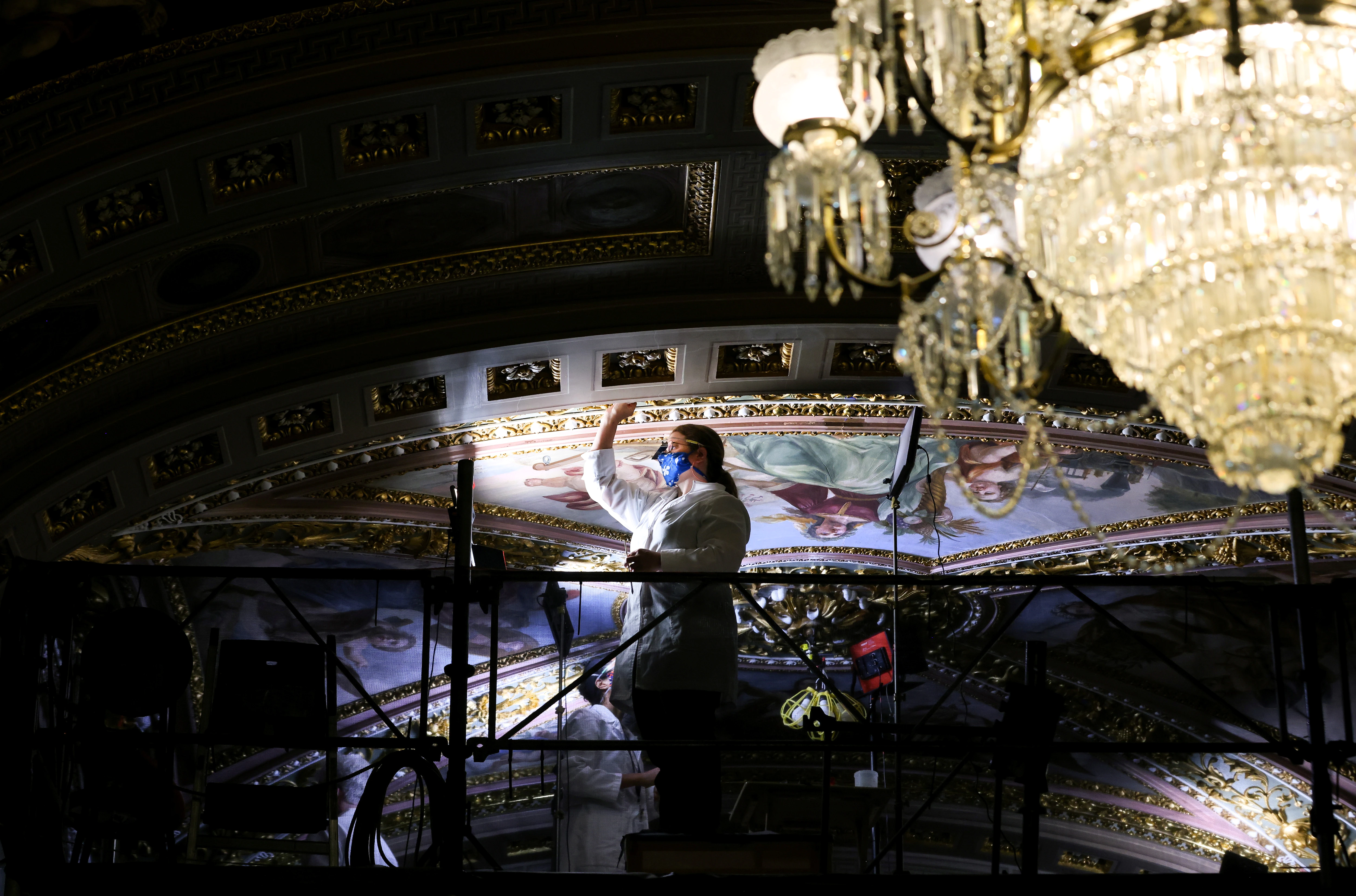The U.S. Senate is holding a procedural vote Saturday on a $1.2 trillion bipartisan infrastructure package, after a late-night session Thursday ended with no compromises.
“We’ve worked long, hard and collaboratively to finish this important bipartisan bill,” Senate Majority Leader Chuck Schumer said just before midnight Thursday, according to The Associated Press.
“We very much want to finish,” he said in announcing a cloture vote set for Saturday at noon EDT.
A vote to invoke cloture would end debate on the massive bill and allow for a final vote by the Senate later Saturday or Sunday. Three-fifths of the chamber’s senators — 60 of the 100 — would need to vote to invoke cloture to advance the bill.
The package, one of President Joe Biden’s top legislative priorities, would provide tens of billions of dollars to repair the country’s deteriorating roads and bridges, advance broadband internet service throughout the country, expand rail and transit services and replace lead-piped drinking water systems.
Schumer, however, admonished Republicans for their actions on Thursday.
“We have been trying to vote on amendments all day but have encountered numerous objections from the other side,” he said, referring to Republicans.
Among the amendments discussed were a provision to tax cryptocurrency and a demand for billions of dollars in new Defense Department improvements, according to a Reuters report.
For the bill to make it to the Senate floor for a final vote, at least 10 Republicans must join the 50 Democratic senators to invoke cloture, ending debate.
The infrastructure bill would then be submitted to a final vote by simple majority in the Senate, likely Saturday or Sunday.
If the Senate approves the measure, the House of Representatives would then consider it. Passage appears less certain in the House, where some progressive Democratic lawmakers are complaining that the spending package is too small.
Biden has been vocal in his support for the infrastructure bill, aiming not only to describe the improvements that would be made across the U.S. but also to convince voters that major legislation can still be approved in politically fractious Washington.
It includes $550 million in new spending, along with $450 billion in previously approved funds.
The package includes $110 billion for roads and bridges, $39 billion for public transit, $66 billion for rail, and $55 billion for drinking water and wastewater infrastructure, as well as billions for airports, ports, broadband internet and electric vehicle charging stations.
Some information for this report came from The Associated Press, Reuters and Agence France-Presse.
















































